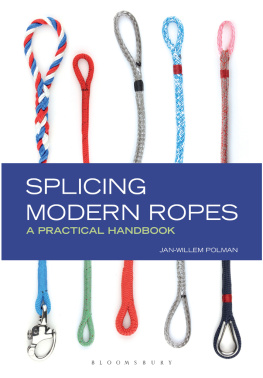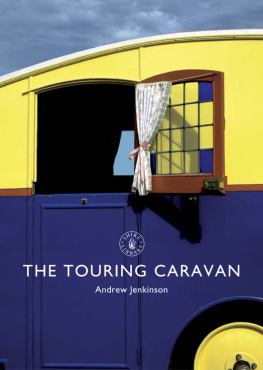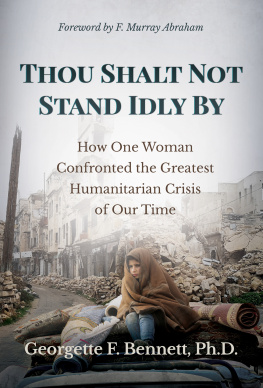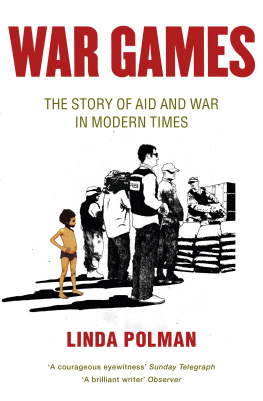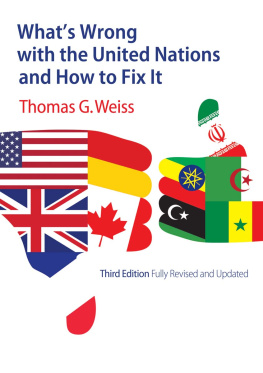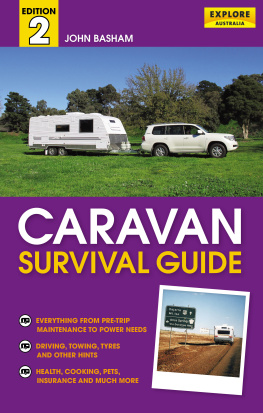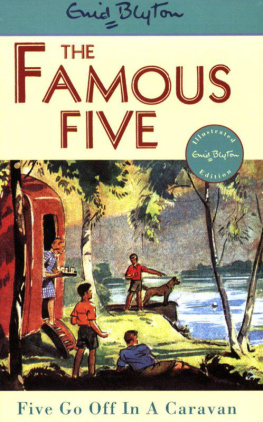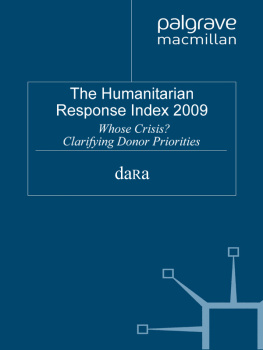Polman - The Crisis Caravan: Whats Wrong with Humanitarian Aid?
Here you can read online Polman - The Crisis Caravan: Whats Wrong with Humanitarian Aid? full text of the book (entire story) in english for free. Download pdf and epub, get meaning, cover and reviews about this ebook. year: 2010, publisher: Henry Holt and Co., genre: Romance novel. Description of the work, (preface) as well as reviews are available. Best literature library LitArk.com created for fans of good reading and offers a wide selection of genres:
Romance novel
Science fiction
Adventure
Detective
Science
History
Home and family
Prose
Art
Politics
Computer
Non-fiction
Religion
Business
Children
Humor
Choose a favorite category and find really read worthwhile books. Enjoy immersion in the world of imagination, feel the emotions of the characters or learn something new for yourself, make an fascinating discovery.

- Book:The Crisis Caravan: Whats Wrong with Humanitarian Aid?
- Author:
- Publisher:Henry Holt and Co.
- Genre:
- Year:2010
- Rating:3 / 5
- Favourites:Add to favourites
- Your mark:
- 60
- 1
- 2
- 3
- 4
- 5
The Crisis Caravan: Whats Wrong with Humanitarian Aid?: summary, description and annotation
We offer to read an annotation, description, summary or preface (depends on what the author of the book "The Crisis Caravan: Whats Wrong with Humanitarian Aid?" wrote himself). If you haven't found the necessary information about the book — write in the comments, we will try to find it.
Polman: author's other books
Who wrote The Crisis Caravan: Whats Wrong with Humanitarian Aid?? Find out the surname, the name of the author of the book and a list of all author's works by series.
The Crisis Caravan: Whats Wrong with Humanitarian Aid? — read online for free the complete book (whole text) full work
Below is the text of the book, divided by pages. System saving the place of the last page read, allows you to conveniently read the book "The Crisis Caravan: Whats Wrong with Humanitarian Aid?" online for free, without having to search again every time where you left off. Put a bookmark, and you can go to the page where you finished reading at any time.
Font size:
Interval:
Bookmark:
THE CRISIS CARAVAN
WHATS WRONG WITH HUMANITARIAN AID?
LINDA POLMAN
TRANSLATED BY LIZ WATERS
METROPOLITAN BOOKS HENRY HOLT AND COMPANY NEW YORK

Metropolitan Books
Henry Holt and Company, LLC
Publishers since 1866
175 Fifth Avenue
New York, New York 10010
www.henryholt.com
Metropolitan Books and  are registered trademarks of
are registered trademarks of
Henry Holt and Company, LLC.
Copyright 2010 by Linda Polman
Translation copyright 2010 by Liz Waters
All rights reserved.
This book has been financed in part by subsidies from the Fund for Extraordinary Journalistic Projects (www.fondsbjp.nl) and the Democracy and Media Foundation (www.stdem.org), both based in Amsterdam.
Originally published in The Netherlands in 2008 under the title De crisiskaravaan by Uitgeverij Balans, Amsterdam First English edition published in the United Kingdom in 2010 under the title War Games by Viking, London
Library of Congress Cataloging-in-Publication Data
Polman, Linda.
The crisis caravan : whats wrong with humanitarian aid? / Linda Polman ; translated by Liz Waters.1st U.S. edition.
p. cm.
Includes bibliographical references.
ISBN 978-0-8050-9290-5
1. Disaster relief. 2. Humanitarian assistance. I. Waters, Liz. II. Title.
HV553.P65 2010
361.2'6dc22 | 2010004825 |
Henry Holt books are available for special promotions and premiums. For details contact: Director, Special Markets.
First U.S. Edition 2010
Designed by Kelly Too
Printed in the United States of America
1 3 5 7 9 10 8 6 4 2
THE CRISIS CARAVAN
The humane desire to lighten a little the torments of all these poor wretches... creates a kind of energy which gives one a positive craving to relieve as many as one can.
Henri Dunant, humanitarian aid worker and founder of the International Committee of the Red Cross (ICRC)
Imagine that youre an international humanitarian aid worker in a war zone and faithful to the principles of the Red Cross, as any good humanitarian should be. In other words, youre impartial, neutral, and independent. Its your responsibility to relieve human suffering, irrespective of the people involved and the situation on the ground. This time your mission has taken you to a refugee camp in Darfur. You do what you can for the victims, but soldiers exploit your efforts. They demand money for every well you dig and levy sky-high taxes, imposed on the spot, on all the sacks of rice and tents and medicines you arrange to have flown in. They consume a slice of your aid supplies and sell another slice. Among the items they buy with the proceeds are weapons, which they use to drive yet more people into your refugee camp or even to their deaths.
What do you do? Do you conclude that it is no longer possible to cling to the principles of the Red Cross, pack your bags, and leave to help war victims elsewhere? Or do you remain true to your convictions, believing that even if you save only one human life, some relief is better than none?
Leave, or continue providing aid at any price? Its a centuries-old dilemma. Two of the worlds first international humanitarian aid workers, Florence Nightingale and Henri Dunant, fundamentally disagreed as to which would be the right choice. Nightingale was convinced that aid fails in its purpose if the warring parties use it to their own advantage. Dunant firmly believed in the duty to help no matter what.
Dunant, born into a Calvinist milieu in Switzerland, was a banker and businessman in Geneva. In 1859, he witnessed the Battle of Solferino during the war between Austria and the Franco-Sardinian Alliance. Of the three hundred thousand men and boys on the sixteen-mile front line in Lombardy, forty thousand were killed. Another forty thousand soldiers were wounded. They lay on the battlefield, where most were left to die.
In the book that Dunant published three years after this experience, Un Souvenir de Solferino (A Memory of Solferino), he describes the spectacle the morning after the engagement:
Bodies of men and horses covered the battlefield; corpses were strewn over roads, ditches, ravines, thickets and fields; the approaches to Solferino were literally thick with dead. The poor wounded men were ghostly pale and exhausted.... Some, who had gaping wounds already beginning to show infection, were almost crazed with suffering. They begged to be put out of their misery, and writhed with faces distorted in the grip of the death struggle.... In some quarters there was no water, and the thirst was so terrible that officers and men alike fell to drinking from muddy pools whose water was foul and filled with curdled blood. The mens wounds were covered with flies. The tunic, shirt, flesh and blood formed an indescribable mass, alive with vermin.
Wounded Austrian soldiers told Dunant that after a long, sweltering march they had been sent straight into battle, without a chance to rest and without being given anything to eat or drink, save a brandy ration. French soldiers, too, had marched for days on end to reach the front. On the morning of the battle theyd had nothing besides a mug of coffee.
For lack of sufficient army doctors, it was the inhabitants of the villages and small towns in the vicinity of Solferino who set about helping the wounded, with bandages and water. The volunteers carried surviving soldiers to stables, churches, and monasteries, where they helped a handful of village doctors amputate limbs. In the circumstances, little other medical help could be given.
The convoys brought a fresh contingent of wounded men... every quarter of an hour, and the shortage of assistants, orderlies and helpers was cruelly felt, wrote Dunant. He gathered together a group of volunteers, mainly women. Nearly five hundred soldiers were there, piled in the church, and a hundred more lay outside on straw in front of the church, with strips of canvas to protect them from the sun. The women... went from one man to another with jars and canteens full of pure water to quench their thirst and moisten their wounds.
Dunant arranged for cauldrons of soup to be prepared, and he supplied the volunteers with large bales of lint for cleaning wounds. From a town some distance away he had medicines, shirts, oranges, and tobacco brought in at his own expense.
Tutti fratelli was Dunants conviction. We are all brothers. He successfully persuaded the volunteers to help all wounded men, Austrians included. In the days that followed, noble philanthropists and ladies auxiliary committees established for the occasion each made it a point of honor to care for wounded soldiers, irrespective of nationality.
Every house for miles around was turned into a clinic. People doled out soup, wrote farewell letters to families on behalf of dying soldiers, and patted blood-encrusted hands comfortingly. They meant well, Dunant wrote, but the volunteers were and remained isolated enthusiasts making dispersed efforts. The food delivered by injudicious townspeople to the churches and hospitals was often unsuitable for wounded men, and eventually the doors had to be shut to them. The consequence was that many, who would have been willing to spend an hour or two with the patients, would not be bothered when it became necessary to have an authorization and go and ask for it.... There was no time for those who knew their business to give the needful advice and guidance, and most of those who brought their own goodwill to the task lacked the necessary knowledge and experience, so that their efforts were inadequate and often ineffective.
Next pageFont size:
Interval:
Bookmark:
Similar books «The Crisis Caravan: Whats Wrong with Humanitarian Aid?»
Look at similar books to The Crisis Caravan: Whats Wrong with Humanitarian Aid?. We have selected literature similar in name and meaning in the hope of providing readers with more options to find new, interesting, not yet read works.
Discussion, reviews of the book The Crisis Caravan: Whats Wrong with Humanitarian Aid? and just readers' own opinions. Leave your comments, write what you think about the work, its meaning or the main characters. Specify what exactly you liked and what you didn't like, and why you think so.

